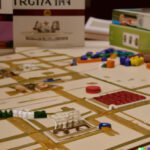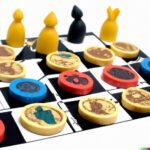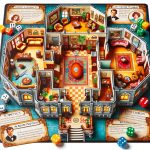The Clue board game, also known as Cluedo in some regions, has stood the test of time as a classic and beloved mystery game. Its enduring popularity can be attributed to its unique blend of strategy, deduction, and suspenseful gameplay. Players must navigate through a web of clues to determine the culprit, weapon, and location of a murder mystery.
One of the key elements that sets Clue apart from other board games is the strategic thinking required to excel. Every move counts in this game of deduction, where players must carefully plan out their next steps to uncover the truth behind the crime. Developing a solid strategy is essential for outsmarting opponents and emerging victorious.
As players delve into the intricacies of Clue, they will quickly realize that success hinges on more than just luck. Understanding the basics of the game rules and objective is crucial, but mastering the art of deduction is where true skill comes into play. By carefully analyzing the game board layout, utilizing logical reasoning, and keeping meticulous notes, players can enhance their strategic gameplay and increase their chances of solving the mystery before anyone else.
Understanding the Basics
In the game of Clue, players are tasked with solving a murder mystery by determining the three main aspects of the crime: the suspect, the weapon used, and the room where it took place. The game board represents different rooms in a mansion where various characters could have committed the crime with a variety of weapons. Players must move around the board, making suggestions about these elements until they can make an accurate accusation.
Role of Strategy
While luck certainly plays a role in Clue, strategic thinking is key to successfully solving the mystery before your opponents. A solid strategy involves observing your opponent’s moves and deductions, as well as carefully planning your own actions to gather information efficiently. By strategically narrowing down possibilities and eliminating options, you can increase your chances of making an accurate accusation before others.
Working With Deduction
One of the core elements of Clue is deduction, which involves using logical reasoning to eliminate suspects, weapons, and rooms from consideration based on information gathered throughout gameplay. It is important to pay close attention to suggestions made by other players and react accordingly by either confirming or refuting their claims. By consistently deducing which cards are held by whom, you can narrow down possible combinations rapidly and increase your chances of solving the mystery first.
By combining strategic thinking with deductive skills in Clue, players can enhance their gameplay experience and increase their chances of emerging victorious in this engaging murder mystery board game. Remember to always adapt your strategy based on new information uncovered during gameplay and stay one step ahead of your opponents at all times. With practice and careful planning, you can become a master detective in Clue and outwit your fellow players with ease.
Importance of Strategy
Strategy plays a crucial role in the Clue board game, making it not just a game of luck, but also a game of skill and deduction. Without a solid strategy, players may find themselves wandering aimlessly around the mansion, unable to make informed accusations. Understanding the importance of strategy can greatly enhance one’s chances of winning in Clue.
Knowing When to Make Accusations
One key aspect of strategy in Clue is knowing when to make your final accusation. It’s important to gather as much information as possible before accusing a suspect, weapon, and room. Rushing into an accusation without sufficient evidence can lead to elimination from the game. A good strategy involves carefully tracking clues, noting which cards are shown or not shown by other players, and waiting until you have narrowed down the possibilities before making your move.
Adapting to New Information
In Clue, new information is constantly being revealed through the actions of other players. As such, being able to adapt your strategy based on this new information is crucial. Pay attention to what cards are being shown and deduce who might possess the remaining cards. Adjust your suspicions accordingly and be open to changing your initial theories based on the evolving game dynamics. Flexibility and quick thinking are key components of successful strategies in Clue.
Working Towards Disproving Theories
A strategic player in Clue aims not only to prove their own theories but also actively works towards disproving the theories of their opponents. By strategically showing certain cards or asking specific questions, you can subtly influence the suspicions of other players.
This can lead them down false paths while you continue to hone in on the actual solution without drawing unnecessary attention to yourself. The ability to maneuver through misdirection while staying true to your objective is a hallmark of a strong strategy for success in Clue board game.
Analyzing the Game Board
When playing Clue, one of the essential elements to consider is the game board itself. Understanding the layout and implications of the different rooms, hallways, and secret passages can greatly influence your gameplay strategy. Here are some tips for analyzing the game board to improve your chances of solving the mystery:
- Study the layout: Take time to familiarize yourself with the different rooms on the board and their connections via hallways and secret passages. Knowing how to move efficiently between rooms can give you a strategic advantage.
- Identify key locations: Pay attention to high-traffic areas on the board where players are likely to pass through frequently. These locations can be useful for setting up strategic blocks or ambushes.
- Consider room proximity: Think about how close certain rooms are to each other and how this can impact your movement around the board. Being able to quickly reach a room of interest or intercept another player can be crucial.
By carefully analyzing the game board in Clue, you can better plan your movements, anticipate your opponents’ actions, and ultimately increase your chances of solving the mystery before anyone else. Remember, every detail matters in this intricate game of deduction.
Remember that mastering the art of understanding the game board is just one piece of the puzzle when it comes to developing a winning strategy for Clue. Combining this knowledge with effective note-taking, logical reasoning, and subtle misdirection can elevate your gameplay to a whole new level. Stay sharp, stay focused, and most importantly – have fun unraveling the mystery in this classic whodunit game.
The Art of Deduction
One effective way to apply logical reasoning in Clue is to create a system for categorizing and organizing information as it becomes available during gameplay. By keeping track of which cards have been shown and deducing which ones are still in play, players can eliminate possibilities and narrow down the potential combinations of suspect, weapon, and room. This methodical approach can help players make more informed accusations and ultimately solve the mystery faster.
Additionally, honing deductive skills in Clue involves being able to think ahead and anticipate potential moves by other players based on the information at hand. By considering what cards other players are asking for during their turns or how they react to certain suggestions, a player can gain valuable insights into their opponents’ hands and intentions. This awareness can be used strategically to mislead opponents or redirect suspicion away from oneself, ultimately leading to victory in the game.
| Key Strategies | Benefits |
|---|---|
| Organize information systematically | Eliminate possibilities and narrow down solutions |
| Think ahead and anticipate opponents’ moves | Gather insights into opponents’ hands and intentions |
Keeping Track
One important strategy for taking effective notes in Clue is to create a system that works best for you. This could involve using shorthand symbols or abbreviations to quickly jot down information as it is revealed during gameplay.
Some players prefer to use a separate notepad to organize their notes, while others find it helpful to keep everything on a single sheet of paper within easy reach. Whatever method you choose, consistency and clarity are key to ensuring that your notes are useful when trying to solve the mystery.
Organizing information is just as important as taking effective notes in Clue. Players should keep track of each suggestion made by opponents, any cards that have been shown or disproved, and any deductions made based on this information.
By organizing this data systematically, players can start eliminating possibilities and narrowing down the solution to the mystery. Additionally, updating notes after each turn can help players stay on top of new developments and make more informed decisions moving forward in the game.
| Note-Taking Strategies | Effective Organization Tips |
|---|---|
| Create a system that works for you | Keep track of suggestions and disproved cards |
| Use shorthand symbols or abbreviations | Update your notes after each turn |
| Consistency and clarity are key | Narrow down possibilities systematically |
Bluffing and Misdirection
Here are some effective strategies for bluffing and misdirection in Clue:
- Provide false information: Deliberately share incorrect suggestions or make misleading accusations to divert attention away from the actual solution.
- Use reverse psychology: Sometimes, suggesting a suspect, weapon, or room that you believe is obvious can make others doubt themselves and overlook less apparent possibilities.
- Manipulate body language: Pay attention to your reactions when certain cards are shown to you. Displaying subtle signs of surprise or satisfaction can lead others to draw inaccurate conclusions.
In addition to employing bluffing techniques, misdirection is another powerful tool in your strategy for Clue. By strategically directing suspicion towards specific aspects of the investigation, you can steer your opponents off course and prevent them from uncovering vital clues. Remember, successful misdirection requires finesse and a keen understanding of human psychology – use this knowledge to your advantage during gameplay.
Mastering the art of bluffing and misdirection in Clue can significantly elevate your performance in the game. By honing these strategic skills, you can control the narrative of the investigation, sow seeds of doubt among your rivals, and secure your position as a formidable player. Keep practicing these tactics and observe how they enhance both your gameplay experience and overall success in solving the mystery of Clue.
Final Thoughts
In conclusion, mastering the Clue board game requires a combination of strategic thinking, deductive reasoning, and a bit of psychological manipulation. By understanding the basics of the game rules and objective, players can then focus on developing their own unique strategy for success.
One key aspect to consider is analyzing the game board layout, as it can provide important clues and implications for gameplay strategy. Whether it’s taking note of room connections or keeping track of which cards have been shown, being vigilant in your observations can give you a competitive edge.
The art of deduction is at the heart of Clue, where logical reasoning plays a crucial role in solving the mystery. Players must use their deductive skills to eliminate possibilities and narrow down potential solutions. Effective note-taking and information organization are also essential in keeping track of clues and piecing together the puzzle. By staying organized and methodical, players can better assess their options and make informed decisions.
Furthermore, bluffing and misdirection can add another layer of complexity to the game, allowing players to deceive their opponents and throw them off their trail. By strategically misleading others with false accusations or leading them towards wrong conclusions, players can gain an advantage in uncovering the truth themselves.
Ultimately, becoming a master of Clue requires not only understanding the key strategies outlined but also adapting them to your own playing style. With practice and persistence, anyone can sharpen their skills and increase their chances of emerging victorious in this classic whodunit game.
Frequently Asked Questions
What Is the Best Strategy for Clue?
The best strategy for Clue involves a mixture of deductive reasoning and tactical gameplay. It is essential to keep track of all the suggestions made by other players and use that information to narrow down the possibilities.
Is Clue a Game of Luck or Skill?
Clue is predominantly a game of skill rather than luck. While chance plays a role in drawing cards at the beginning of the game, the outcome is heavily influenced by players’ abilities to make logical deductions based on available information.
What Are Suggestions for Clue Game?
When playing Clue, it is crucial to make well-thought-out suggestions to gather more information from other players’ responses. Pay attention to which cards are revealed during the game, as it can help in determining what cards your opponents hold.

I love playing all kinds of games – from classics like Monopoly to modern favourites like Ticket to Ride.
I created this blog as a way to share my love of board games with others, and provide information on the latest releases and news in the industry.





